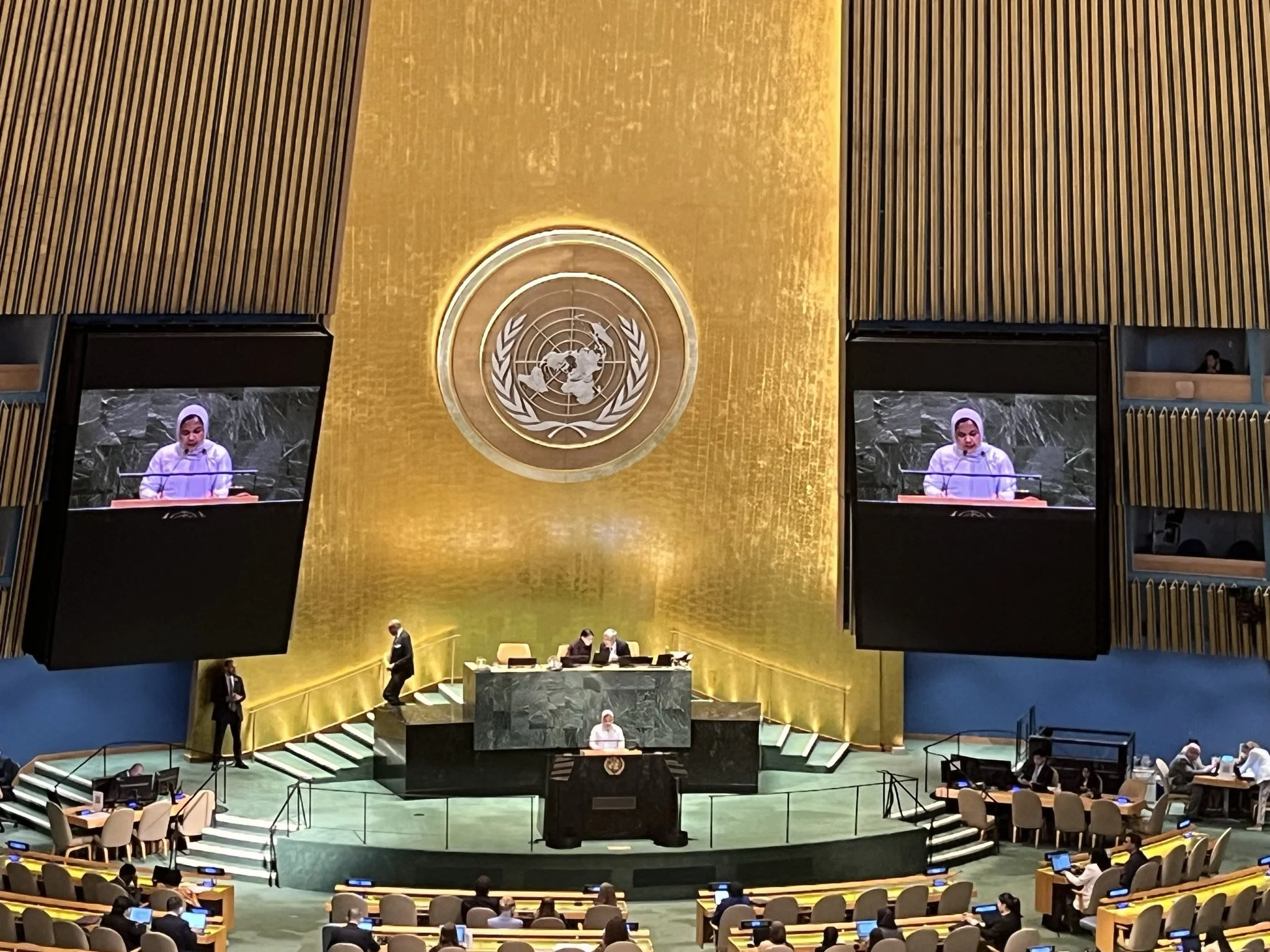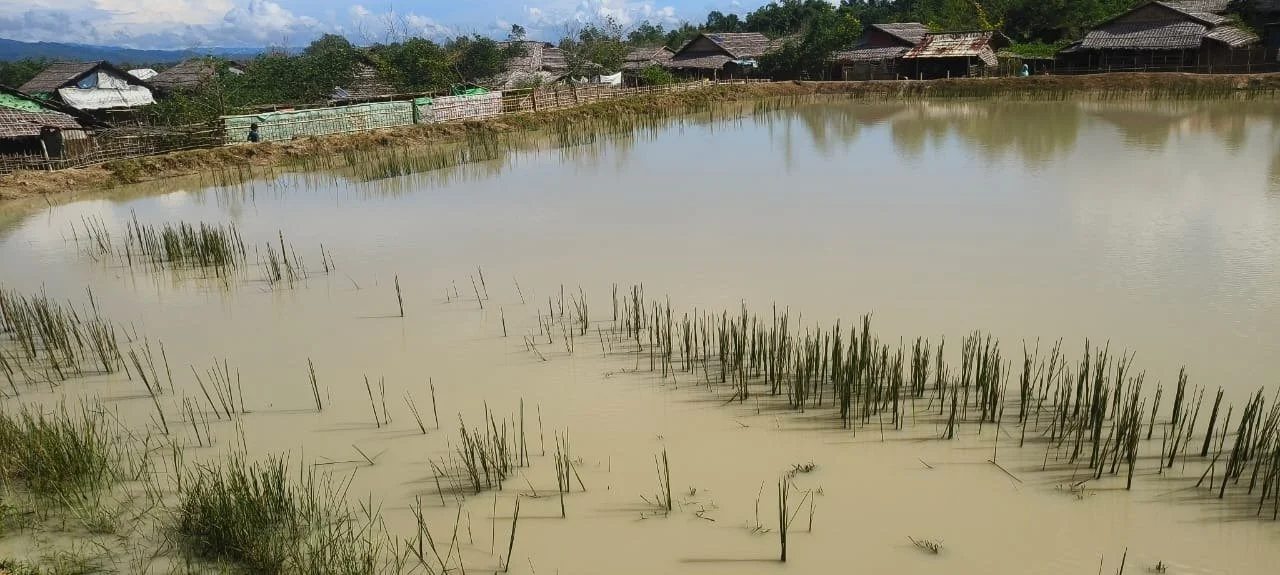PAEMA reflections and proposed next steps on the UN High-Level Conference on the Situation of Rohingya Muslims and Other Minorities in Myanmar
October 2025
Translating statements to action:
The UN High-Level Conference on the Situation of Rohingya Muslims and Other Minorities in Myanmar brought together dignitaries, UN senior officials, Rohingya community representatives, and a plenary of member states and international civil society organizations. Rohingya representatives highlighted urgent priorities demanding international attention, echoed by many member states.
PAEMA commends member states for recognizing the need for progress in their statements. The conference helped renew international focus on the crisis, but the momentum generated could quickly fade without immediate, practical follow-up. Given the entrenched nature of the crisis, finding effective steps forward can be daunting. Yet progress on certain fronts is within reach.
While recognizing that long-term solutions are not yet foreseeable on the horizon, PAEMA urges member states and other stakeholders to take immediate action on certain aspects of the crisis that can be acted on immediately.
(Quotes from remarks made by speakers and member states during the conference plenary are italicized.)
Flooding in Buthidaung township. October 7, 2025
Increase humanitarian assistance in Bangladesh and Rakhine State
As many speakers emphasized, communities affected by conflict, economic collapse, and recurring disasters need immediate humanitarian assistance. While international stakeholders convened in New York last week, communities in northern Rakhine were struggling with severe flooding, and a local leader reported to PAEMA that two members of his community in rural Buthidaung recently died of starvation.
Speakers at the conference called for “rapid, safe, and unimpeded humanitarian access,” and the de facto authorities in Rakhine State have called on the international community to provide aid. The inflow of goods to Rakhine is impeded by land blockades from the Myanmar interior and the closure of the Bangladesh border, but food is available in most markets and can be transported to most outlying areas. Families in many villages report that they can receive cash transfers with ease. Their hunger is preventable. Humanitarian assistance is therefore a moral imperative, not a logistical impossibility.
Donors and international organizations must pursue the reopening of programs in northern Rakhine that shut down due to heavy fighting in 2024 and earlier this year. Capable local groups that already have access to Rohingya and other communities can be immediately engaged as partners to deliver cash and food assistance. Bangladesh should also facilitate these efforts, recognizing that improving conditions across the border will help prevent further displacement and help create an environment for eventual, voluntary repatriation once conditions are met. Local actors reported to PAEMA that many families in northern Rakhine now seek to flee to Bangladesh mainly in search of aid.
In the Bangladesh camps, recent pledges by the United States, the United Kingdom, and others will extend the fragile aid lifeline for a few more months. Feeding the camp population of over one million people costs more than $10 million per month. The U.S. announcement of $60 million for food assistance alleviates immediate concerns, but refugees do not want to remain dependent on aid. Rather than funding subsistence handouts, donors should invest in building the in-camp economy to create dignified livelihood opportunities for both refugees and host community members. Vocational training and economic opportunities are essential to ensure that when refugees can safely return home, they have the tools to build sustainable futures.
Engagement on immediate protection concerns
During the conference, the Independent Investigative Mechanism on Myanmar (IIMM) launched its report on the seizure and demolition of Rohingya lands and villages during the 2017 clearance operations. PAEMA is alarmed by ongoing reports of human rights abuses, evictions under the current authorities, restrictions that prevent Rohingya farmers from working their lands, and arrests of returnees displaced during last year’s heavy fighting. Militancy by Rohingya armed groups continues to prevent communities from feeling secure.
International actors must not remain passive. The IIMM should continue investigating allegations against all armed actors in the region, with donors sustaining support for its mandate. However, accountability also requires political engagement. The Arakan Army (AA) must be engaged, urged, and pressured by key stakeholders and potential interlocutors to uphold their obligations under international law.
PAEMA welcomes preliminary signs of goodwill, including the reopening of the Jameh Mosque in Maungdaw, which had been closed since 2012. In a recent interview in The Irrawaddy published the week of the conference, Arakan Army (AA) Chief Tun Myat Naing referenced the need for better discipline of AA troops, pledging to supervise them more closely. Next, the AA should demonstrate sincerity by engaging with international mechanisms, investigating allegations of misconduct, and holding violators accountable
Fostering leadership
As multiple speakers noted, “genuine and inclusive dialogue” is essential for peaceful coexistence in Rakhine. Bangladesh Chief Advisor Muhammad Yunus called for “confidence-building” to integrate Rohingya in society and governance. PAEMA welcomes the inclusion of Rohingya speakers at the August 2025 dialogue in Cox’s Bazar - one of only a few moments in recent memory when Rohingya representatives participated in a formal political forum. However, some refugees expressed frustration that participation was limited primarily to diaspora leaders. The selection of formally recognized camp representatives, also in August, was a welcome step toward refugee inclusion, though not a substitute for a democratic process.
Building Rohingya civic leadership within the camps is necessary to ensure that members of the most critically affected parts of the population are engaged in solutions. Donors must invest in basic education but also in boutique programming for civic engagement that equips communities in the camps and in Rakhine with the resources, relationships, and skills necessary to steer progress.
Rakhine State, like all of Myanmar, is home to diverse communities. Community-based organizations in PAEMA’s network engage with Rohingya, Rakhine, Thet/Chakma, Mro, Maramagyi, Hindu, Bamar, and other populations in Maungdaw and Buthidaung, where local leaders stress that everyone faces humanitarian hardship and shares similar needs. In many places, locals already coexist peacefully each day. Social cohesion programming will equip community members to participate in dialogue and overcome divisiveness.
Youth, particularly those growing up in isolation in the Rohingya camps, need civic and political education to prepare for participation as active, engaged future citizens. Providing humanitarian assistance alone is insufficient; investments made in youth leadership development today will undergird political, economic, and social progress in the future. Of course, Bangladeshi host community youth should be offered parallel opportunities as they learn to address additional challenges facing the borderlands.
As Finland Education Minister Anders Adlercreutz remarked at the conference, “The youth and people of Myanmar need hope; it is the responsibility of the UN and us all to offer hope.” In addition, “meaningful leadership and inclusion of women and girls” must be integral to all such efforts. Member states should increase their commitments on these issues and make inroads where immediate action is possible.


